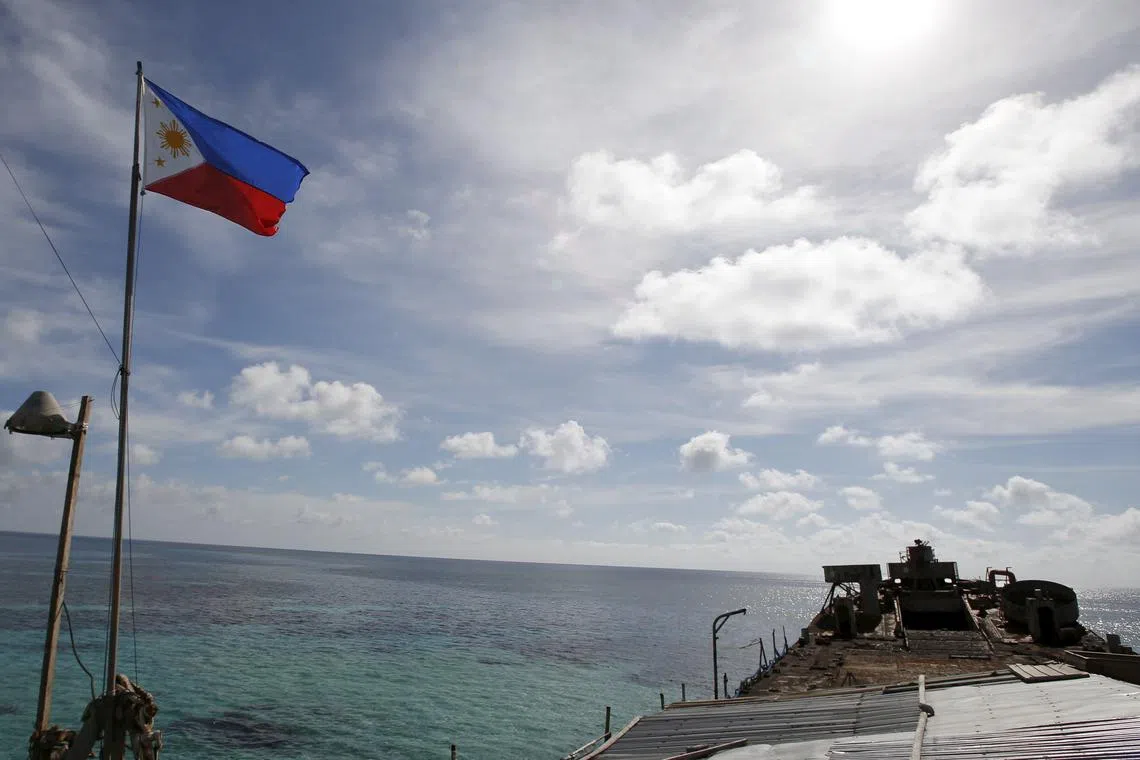China monitored Philippine supply run to grounded warship on disputed shoal
Sign up now: Get insights on Asia's fast-moving developments

Both China and the Philippines claim the Second Thomas Shoal, frequently clashing in its surrounding waters.
PHOTO: REUTERS
BEIJING - The Chinese coast guard on March 5 said it monitored a Philippine civilian boat delivering daily provisions to the “illegally grounded” warship at the disputed Second Thomas Shoal on March 4.
China and the Philippines claim the territory and frequently clash in its surrounding waters.
The resupply missions for soldiers aboard the grounded naval vessel were previously a significant cause of tension between the two countries until they reached a provisional agreement in July 2024
In January, they also agreed to seek common ground
China urges the Philippines to honour its commitments, stop hyping up incidents in the area, and work with China to manage the maritime situation, the coast guard said in a statement on March 5.
The Philippine armed forces said it completed a routine troop rotation and resupply mission to the BRP Sierra Madre warship stationed at the shoal, “in resolute commitment to maintaining its presence and operational readiness in the West Philippine Sea”.
The armed forces carried out the mission with the Philippine coast guard, which was “completed with no untoward incident”.
China has expansive territorial claims in the South China Sea that overlap with the exclusive economic zones of Brunei, Indonesia, Malaysia, the Philippines and Vietnam.
In 2016, an international arbitral tribunal ruled that China’s claims, backed by its historical maps, have no basis


